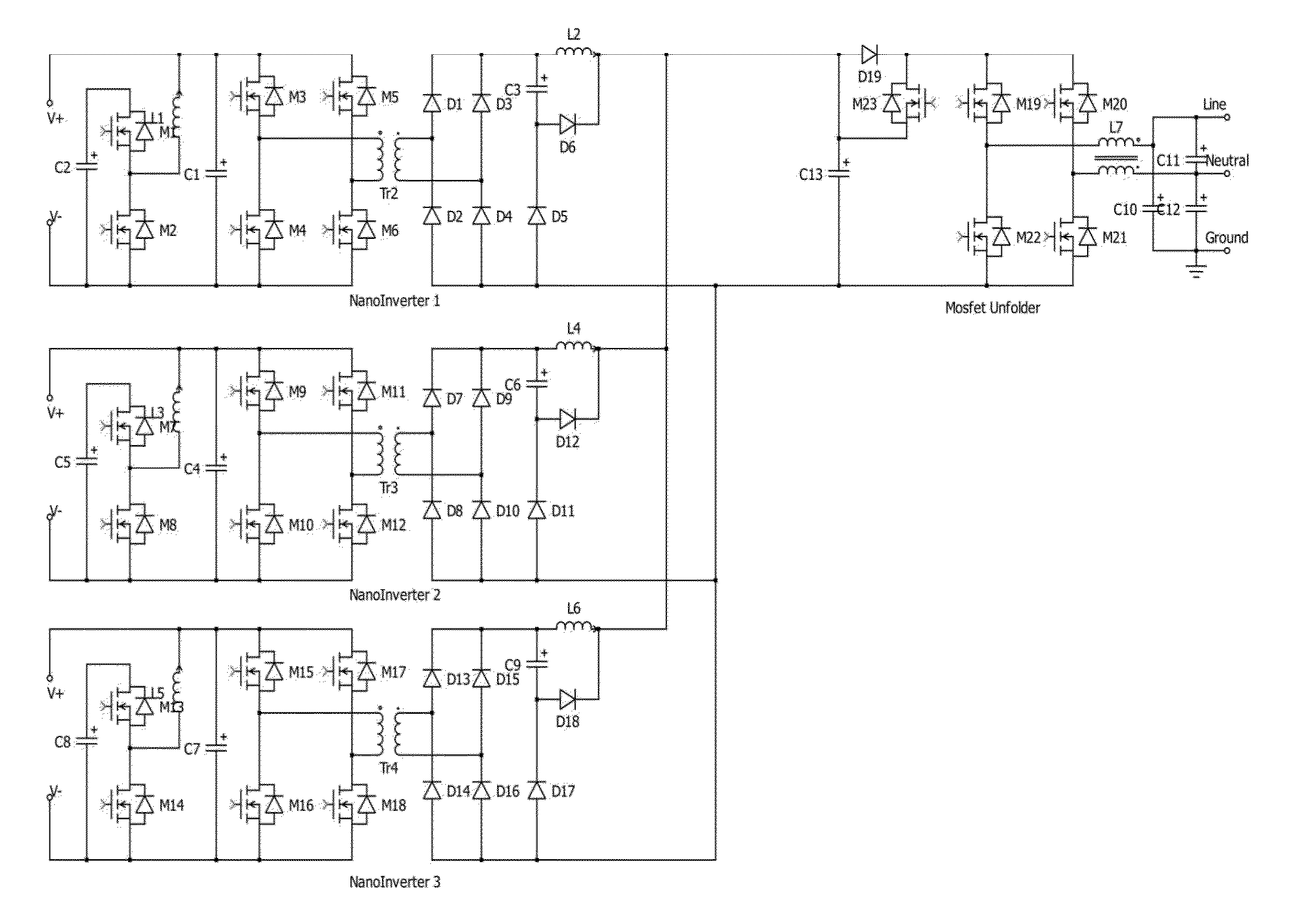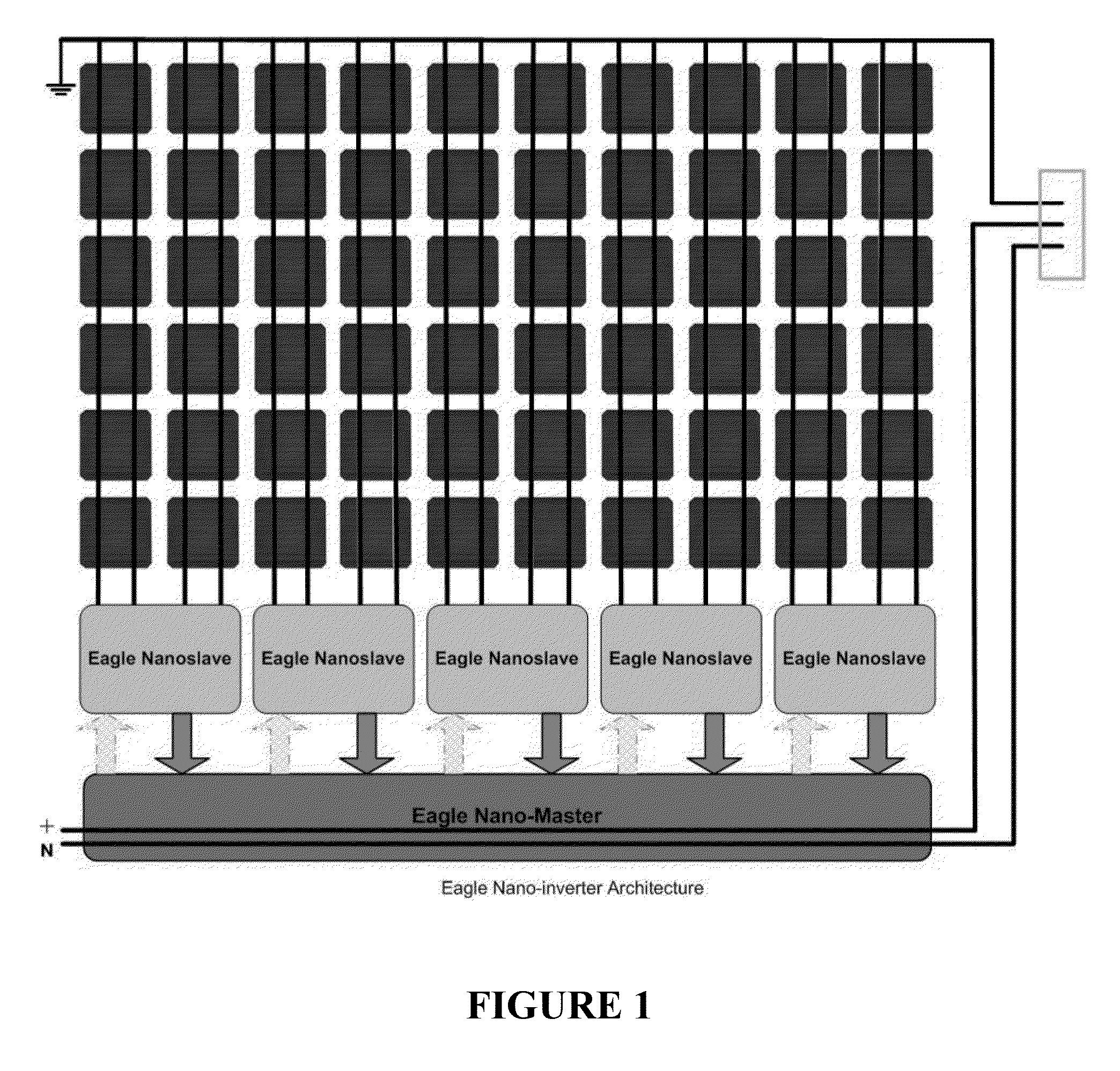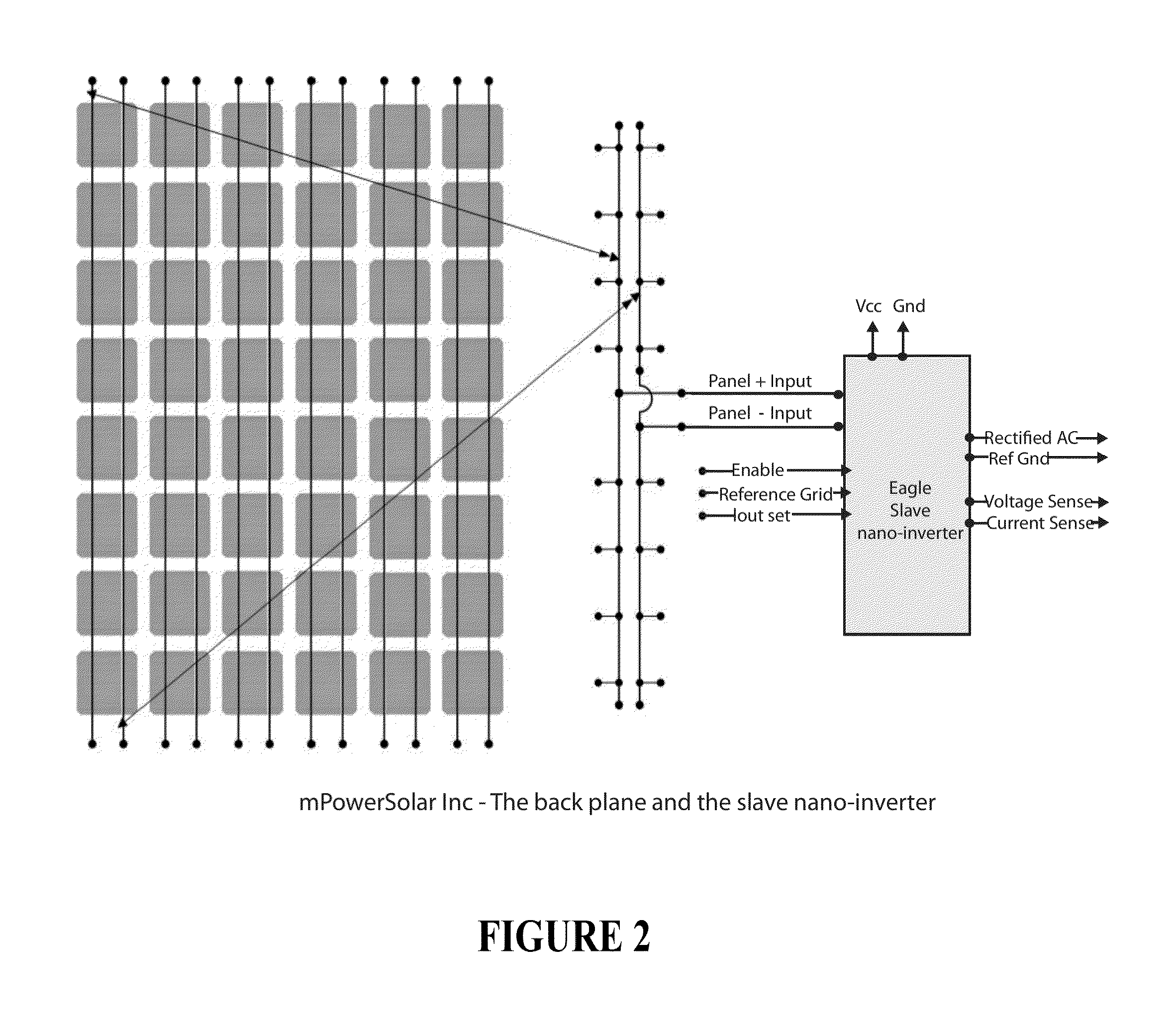Slave circuit for distributed power converters in a solar module
a solar module and slave circuit technology, applied in the field of integrated circuits, to achieve the effect of less cos
- Summary
- Abstract
- Description
- Claims
- Application Information
AI Technical Summary
Benefits of technology
Problems solved by technology
Method used
Image
Examples
Embodiment Construction
[0027]The present disclosure generally relates to integrated circuits. More particularly, the present disclosure provides a method and system for an inverter device including a slave circuit architecture configured for a solar module. Merely by way of example, the inverter device can be coupled to a backplane of a solar module, including a plurality of solar cells. Of course, there can be other variations, modifications, and alternatives.
[0028]As PV panel increase in rated output power, the notion of running at the Maximum Power Point (MPP) has been a preliminary requirement to maximize the power generation. In addition “stringing” PV panels, which can differ in their MPP points by + / −3-5% usually results in almost all panels being run at sub-optimal power points. Further the effects of shading and soiling, which contribute to higher loss, get amplified in string topologies. As a result, central inversion and string inversion topologies have substantially lower system efficiencies. ...
PUM
 Login to View More
Login to View More Abstract
Description
Claims
Application Information
 Login to View More
Login to View More - R&D
- Intellectual Property
- Life Sciences
- Materials
- Tech Scout
- Unparalleled Data Quality
- Higher Quality Content
- 60% Fewer Hallucinations
Browse by: Latest US Patents, China's latest patents, Technical Efficacy Thesaurus, Application Domain, Technology Topic, Popular Technical Reports.
© 2025 PatSnap. All rights reserved.Legal|Privacy policy|Modern Slavery Act Transparency Statement|Sitemap|About US| Contact US: help@patsnap.com



